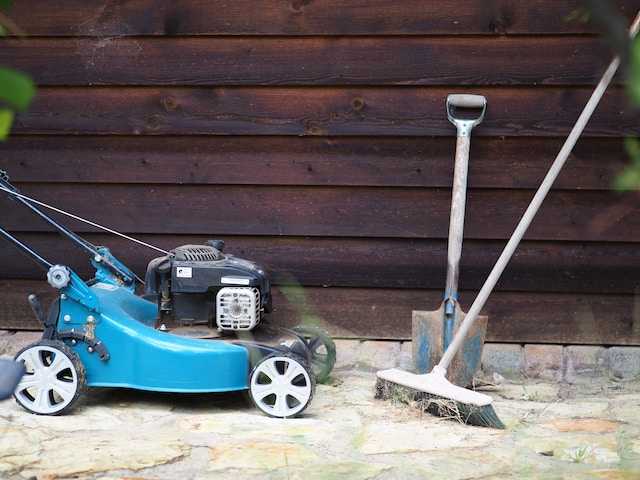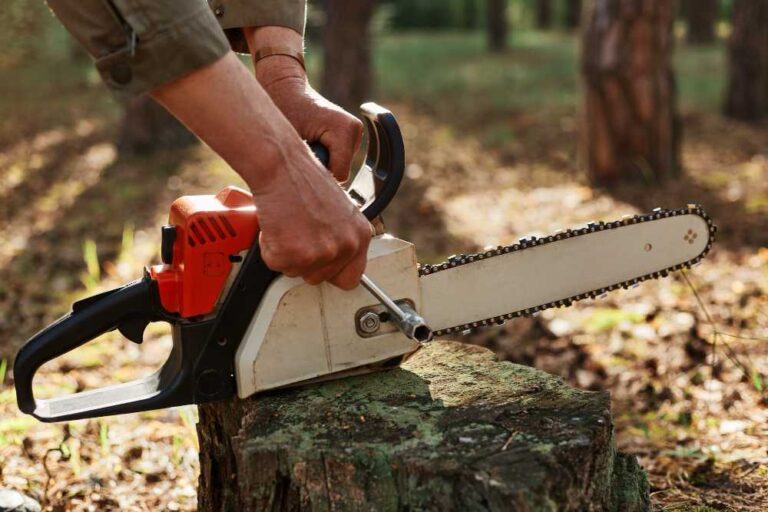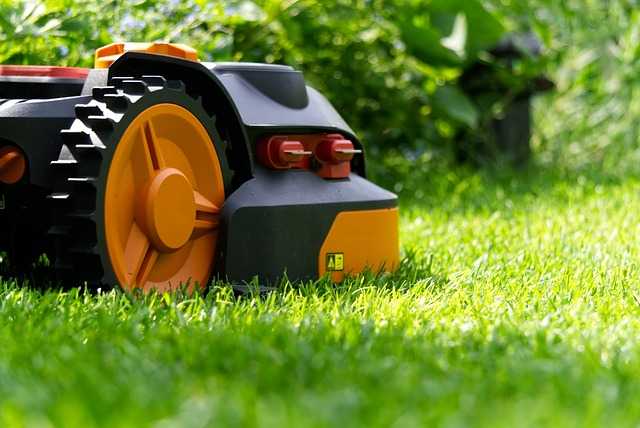How much does a lawn mower weigh? Know the Average Weights
There’s a lot to consider when choosing the right lawn mower equipment for your gardening needs. Most homeowners prioritize the costs, engine power, fuel type, brand, and warranty. However, one commonly overlooked yet important factor is lawn mower weight. The weight of your chosen lawn mower affects its performance, comfort, and usability.
That said, you shouldn’t feel ashamed to ask how much does a lawn mower weigh? This article highlights the importance of weight consideration when choosing a lawnmower and how much does a lawn mower weigh.
Why Does Lawn Mower Weight Matter?
While cost, engine size, and other factors are important, you should consider the weight of the lawn mower equipment for the following reasons:
1. Storage Considerations
Most homeowners store their lawnmowers in their garages or sheltered carports. You should find an alternative storage space if you don’t have either. Most gardeners with limited backyard space opt for sheds to keep their lawnmowers safe. If such is the case, remember the weight of your lawn mower determines your choice of shed.
You should choose a shed whose floor can support your lawn mower. Simple wooden sheds are cheap and easy to install, but they aren’t the strongest. Your lawn mower can damage or cause it to bow. Knowing the weight of your lawn mower helps ensure that you build or buy a shed that can handle its weight.
2. Stability and Maneuverability
This is a special consideration for those who want to purchase riding lawnmowers. Riding mowers are perfect for large gardens or commercial gardeners. Unlike small yards, large gardens have hilly, sloping, and uneven sections. This makes stability and maneuverability an important consideration.
While you should choose a heavy lawn mower that gives you much-needed control, you shouldn’t pick an overly heavy machine with limited ability to turn and navigate through obstacles.
3. Transportation Considerations
Transport considerations specifically apply to commercial gardeners who will have to move around with their lawnmowers. A large and heavy lawnmower will make moving challenging. Even if you’ll be using a pickup truck or a trailer to move around with your mower, loading and offloading a heavy lawnmower is stressful.
How Much Does a Lawn Mower Weigh?
Unfortunately, there’s no straightforward answer to how much does a lawn mower weigh. For instance, push lawn mowers weigh between 15 and 35lbs, self-propelled lawnmowers weigh from 50 to 120 lbs, while riding mowers weigh up to 1000 lbs. That said, below is a breakdown of lawn mower weights:
1. Push Reel Lawnmowers
Push reel mowers are the oldest lawnmowers that use human power and rotating blades to trim grass. They are the lightest type, weighing between 20 and 24 pounds. This makes them easy to push and maneuver around the garden. Because of their reliance on human power, they are best used in small lawns with short grass.
2. Cordless Battery-powered Push Mowers
Cordless battery-powered push mowers are powered by rechargeable batteries. While they work perfectly, especially for small lawns, the included battery adds to their weight, making them quite bulky. Nonetheless, they still weigh between 30 and 50 lbs. The lightest model weighs 23lbs, while the heaviest weighs 58lbs.
3. Corded Electric Push Mowers
Coded electric push mowers are a perfect alternative to gas-powered mowers. They have an electric motor and plastic deck, which explains their average weight of between 20 to 40 lbs. Corded push mowers are also perfect for small to medium-sized yards. The smallest corded electric push mower weighs 11 lbs, while the most powerful and heaviest weighs 47 lbs.
4. Gas-powered Push Mowers
These common lawnmowers are powered by gasoline. They are best suited for small, medium, and large lawns. They can handle tall grass and have a longer run time. Gas-powered mowers are heavier than other push mowers, weighing 60 to 80 lbs.
Basic mowers with 18-inch blades weigh approximately 57 lbs, while the heavy, self-propelled models with 22-inch blades weigh over 90 lbs.
5. Zero-turn Lawn Mowers
Zero-turn mowers are relatively new on the market. Their excellent turning abilities makes them perfect for navigating tight spaces and obstacles. Zero-turn mowers are ideal for large lawns and are typically used by landscaping professionals. The average weight of these machines ranges from 600 to 900 lbs.
Small models with 42-inch decks weigh around 570 lbs, while heavy models with 60-inch decks weigh up to 990 lbs. The few commercial zero-turn mowers with 72-inch decks weigh up to 1500 lbs.
6. Riding Mowers and Lawn Tractors
Riding lawnmowers, also called lawn tractors, are lawnmowers with seats and steering wheels. They are designed for trimming medium to large-sized lawns and especially for commercial purposes. Most modern riding mowers are powered by batteries and gasoline.
Based on this, riding mowers are heavier than push mowers, with their weight averaging between 400 and 500 lbs. The lightest lawn tractor weighs 410 lbs, while large models weigh over 800 lbs.
Factors Affecting Lawn Mower Weight
If you’re asking how much does a lawn mower weigh, you should similarly know the factors affecting lawn mower weight. The size, engine size, deck material, and power source are the main factors affecting lawn mower weight. This is to mean that powerful lawnmowers with heavy deck material are the heaviest, while small-sized mowers with small engines are the lightest. However, aside from these, accessories or add-ons attached to the lawnmower also affect their weight.
For instance, most gardening tasks require that you attach a soil aerator, roller, rake, and detachable grass collector. These add-ons will certainly increase its weight.
The Bottom Line
As mentioned, there’s no universal standard weight for lawnmowers. Therefore, if you are trying to find out how much does a lawn mower weigh, you should evaluate other factors to determine the accurate weight. Always find out the exact specifications of your lawn mower before shopping for a new storage or transport solution.






